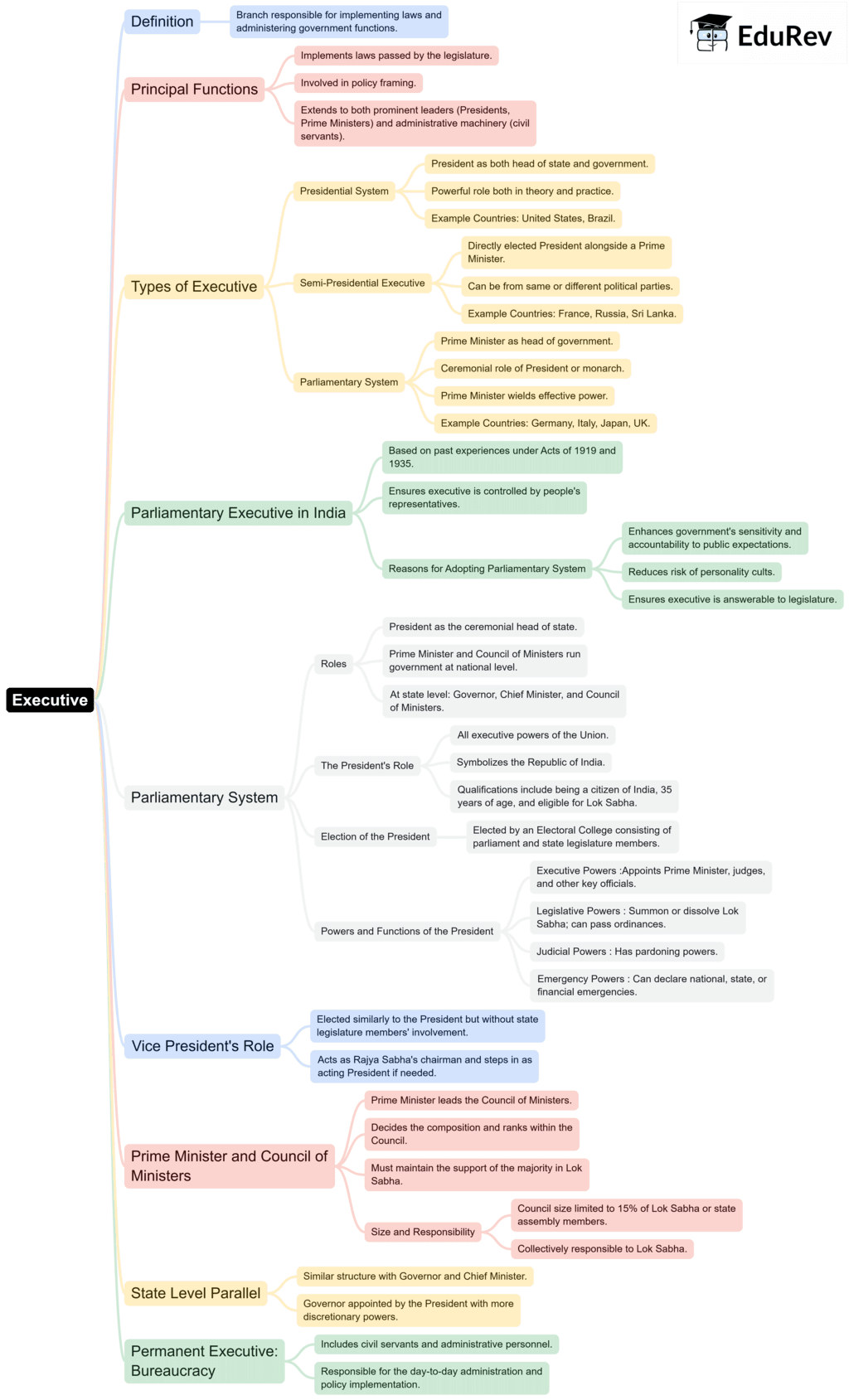Humanities/Arts Exam > Humanities/Arts Notes > Political Science Class 11 > Mind Map: Executive
Mind Map: Executive | Political Science Class 11 - Humanities/Arts PDF Download

The document Mind Map: Executive | Political Science Class 11 - Humanities/Arts is a part of the Humanities/Arts Course Political Science Class 11.
All you need of Humanities/Arts at this link: Humanities/Arts
|
43 videos|278 docs|39 tests
|
FAQs on Mind Map: Executive - Political Science Class 11 - Humanities/Arts
| 1. What are the core themes explored in Executive Humanities/Arts? |  |
Ans. The core themes in Executive Humanities/Arts typically include the intersection of culture, ethics, and leadership. These themes explore how the humanities and arts contribute to understanding human behavior, societal values, and the impact of creativity on leadership practices.
| 2. How do the Executive Humanities/Arts programs enhance leadership skills? |  |
Ans. Executive Humanities/Arts programs enhance leadership skills by fostering critical thinking, empathy, and creative problem-solving. Through exposure to diverse perspectives and cultural contexts, participants develop the ability to navigate complex social dynamics and inspire innovation within their organizations.
| 3. What types of careers can one pursue after studying Executive Humanities/Arts? |  |
Ans. Graduates of Executive Humanities/Arts programs can pursue various careers, including roles in arts administration, cultural management, public policy, education, and corporate social responsibility. Their skills are also applicable in non-profit organizations and community engagement initiatives.
| 4. Why is cultural competency important in Executive Humanities/Arts? |  |
Ans. Cultural competency is crucial in Executive Humanities/Arts as it enables leaders to engage effectively with diverse populations. Understanding different cultural perspectives enhances communication, collaboration, and inclusion, essential for fostering innovation and social cohesion in a globalized world.
| 5. How can the study of history contribute to Executive Humanities/Arts? |  |
Ans. The study of history provides valuable insights into human behavior, societal changes, and the evolution of cultural practices. In Executive Humanities/Arts, historical knowledge informs decision-making and strategy development, allowing leaders to draw lessons from past successes and failures in cultural contexts.
Related Searches
















